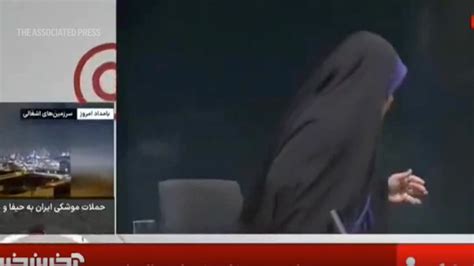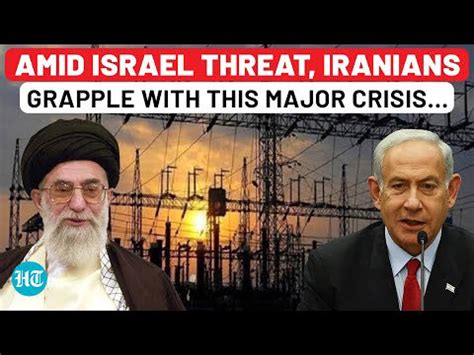
An alleged Israeli strike in Syria has reportedly knocked Iran’s state-affiliated Al-Alam TV off the air, with the station confirming the disruption and blaming the attack on Israel. The incident, which occurred early Sunday, impacted transmission from a studio in Syria and resulted in a temporary broadcast outage.
According to Iranian state media, the Israeli strike targeted the Syrian infrastructure that Al-Alam TV uses for broadcasting, causing significant damage to equipment and interrupting the station’s programming. While details remain scarce, initial reports suggest that the strike hit a location near Damascus, the Syrian capital. The exact nature of the target and the extent of the damage are still being assessed.
“The Zionist entity is behind this attack,” Al-Alam TV declared in a statement released shortly after the disruption. The station vowed to resume broadcasting as soon as possible.
Israel has not officially commented on the incident, maintaining its long-standing policy of neither confirming nor denying its involvement in specific military actions in Syria. However, Israel has repeatedly stated its determination to prevent Iran from establishing a permanent military presence in Syria and has conducted numerous strikes targeting Iranian-linked assets and personnel in the country.
The alleged strike comes amid heightened tensions in the region, with ongoing conflicts in Gaza and concerns about Iran’s nuclear program. The incident underscores the complex and volatile security situation in Syria, where multiple actors are vying for influence.
The interruption of Al-Alam TV’s broadcast is likely to further escalate tensions between Iran and Israel. Al-Alam TV, an Arabic-language news channel, is a key component of Iran’s media apparatus and is often used to disseminate pro-Iranian narratives and perspectives throughout the Middle East.
The Syrian government has condemned the alleged Israeli strike, calling it a violation of its sovereignty and a destabilizing act. Syrian state media reported that the attack caused material damage but did not provide further details about casualties.
The incident highlights the ongoing shadow war between Iran and Israel, which is playing out across the region. While direct military confrontations between the two countries have been rare, both sides have engaged in covert operations, cyberattacks, and proxy conflicts.
The disruption of Al-Alam TV’s broadcast is a reminder of the interconnectedness of the region’s conflicts and the potential for escalation. The incident is likely to further complicate efforts to resolve the ongoing conflicts in Syria and the wider Middle East.
The attack is also notable as it targets media infrastructure, a move that raises concerns about freedom of the press and the targeting of civilian assets during armed conflicts.
Background on Al-Alam TV
Al-Alam News Network (also known as Al-Alam TV) is an Iranian state-owned Arabic-language news channel. Launched in 2003, it aims to provide news and analysis from an Iranian perspective to Arabic-speaking audiences throughout the Middle East and North Africa. The channel is a part of the Islamic Republic of Iran Broadcasting (IRIB), which is the official state broadcaster of Iran.
Al-Alam TV is often described as a key tool in Iran’s media diplomacy, designed to counter Western and Saudi Arabian narratives in the region. Its programming typically focuses on news related to the Middle East, with a particular emphasis on events in Syria, Lebanon, Palestine, and Iraq. It often features interviews with pro-Iranian politicians, analysts, and commentators.
The channel’s content often portrays Iran as a champion of resistance against Western imperialism and Israeli aggression. It frequently covers the activities of groups like Hezbollah and Hamas, presenting them as legitimate resistance movements. The channel has been accused of promoting sectarianism and spreading misinformation.
Al-Alam TV has faced criticism and controversy over its coverage of various events. During the Syrian civil war, it has been accused of being a mouthpiece for the Assad regime, downplaying human rights abuses and promoting the government’s narrative. Its coverage of the Israeli-Palestinian conflict has also been criticized for being biased against Israel.
Israel’s Perspective on Iranian Activity in Syria
Israel views Iran’s presence in Syria as a major security threat. It accuses Iran of trying to establish a permanent military foothold in the country, using Syrian territory to transfer weapons to Hezbollah in Lebanon and to launch attacks against Israel.
Israeli officials have repeatedly stated that they will not allow Iran to establish a military presence on their border. They have conducted hundreds of airstrikes in Syria targeting Iranian-linked targets, including weapons depots, convoys, and bases.
Israel’s actions in Syria have been controversial. Some critics argue that they violate Syrian sovereignty and contribute to the instability in the region. However, Israel maintains that its actions are necessary to protect its national security.
The Wider Context: Iran-Israel Shadow War
The alleged strike on Al-Alam TV is part of a broader shadow war between Iran and Israel that has been ongoing for years. This shadow war involves covert operations, cyberattacks, and proxy conflicts.
Iran and Israel have been engaged in a long-standing rivalry. Iran views Israel as an illegitimate state and a key ally of the United States, while Israel views Iran as its primary existential threat.
The two countries have supported opposing sides in conflicts throughout the region. Iran has supported groups like Hezbollah and Hamas, while Israel has supported various anti-Iranian factions.
The shadow war between Iran and Israel has intensified in recent years, with both sides engaging in more aggressive actions. The alleged strike on Al-Alam TV is just the latest example of this escalating conflict.
International Reactions
The alleged Israeli strike on Al-Alam TV has drawn condemnation from Syria and expressions of concern from various international organizations.
The Syrian government condemned the attack as a violation of its sovereignty and a destabilizing act. Syrian state media reported that the attack caused material damage but did not provide further details about casualties.
Some international organizations have expressed concern about the targeting of media infrastructure during armed conflicts. They have called on all parties to respect the safety of journalists and to avoid targeting civilian assets.
Potential Implications
The alleged Israeli strike on Al-Alam TV could have several potential implications:
- Escalation of Tensions: The incident could further escalate tensions between Iran and Israel, potentially leading to more direct confrontations.
- Disruption of Iranian Propaganda: The disruption of Al-Alam TV’s broadcast could hinder Iran’s ability to disseminate its propaganda in the region.
- Increased Regional Instability: The incident could contribute to increased instability in the already volatile Middle East.
- Focus on Media Targeting: The attack could raise awareness and concern about the targeting of media outlets during conflicts, leading to increased scrutiny and potential legal ramifications.
Analysis of the Event
The reported strike on Al-Alam TV’s Syrian broadcasting infrastructure reflects the ongoing and intensifying conflict between Israel and Iran, played out through proxy conflicts and direct actions within the turbulent landscape of Syria. Israel’s strategy of preventing Iran’s entrenchment in Syria is evident in its repeated strikes targeting Iranian-affiliated assets, even those ostensibly civilian, like media outlets.
The act highlights several critical points:
-
Information Warfare: The targeting of a media outlet signals a move beyond solely military objectives. Al-Alam TV serves as a key tool in Iran’s information operations, disseminating its narratives and propaganda. Disrupting its broadcasting capabilities directly impacts Iran’s ability to influence public opinion and promote its agenda in the region. This elevates the conflict into the realm of information warfare, where controlling narratives becomes as crucial as controlling territory.
-
Red Lines and Escalation: While Israel has consistently targeted military assets linked to Iran in Syria, striking a media outlet could be perceived as crossing a red line. This could prompt a retaliatory response from Iran or its proxies, leading to an escalation of the conflict. The nature and intensity of such a response remain uncertain but could involve cyberattacks, proxy strikes on Israeli interests, or even more direct confrontations.
-
Strategic Communication: The strike sends a clear message to Iran and its allies about Israel’s resolve to counter Iranian influence in the region. It demonstrates that Israel is willing to take bold actions, even those that risk international condemnation, to protect its security interests. This strategic communication aims to deter Iran from further entrenching itself in Syria and to dissuade other actors from supporting Iranian activities in the region.
-
Syrian Sovereignty: The incident underscores the ongoing violation of Syrian sovereignty by multiple actors. Israel’s frequent strikes within Syrian territory, often without the explicit consent of the Syrian government, highlight the limitations of Syria’s control over its own borders. This further destabilizes the country and complicates efforts to find a peaceful resolution to the Syrian conflict.
-
International Law and Norms: The targeting of media infrastructure raises questions about compliance with international law and norms governing armed conflict. While Israel may argue that Al-Alam TV is a legitimate target due to its role in disseminating propaganda and supporting Iranian military objectives, critics may argue that it constitutes a violation of freedom of the press and the protection of civilian assets. The legality and morality of such actions are subject to ongoing debate and interpretation.
Future Implications and Scenarios:
The incident could lead to several future developments:
-
Increased Cyber Activity: Iran may respond with cyberattacks targeting Israeli infrastructure, government websites, or media outlets. This could escalate the conflict into the digital realm, with potentially far-reaching consequences.
-
Proxy Retaliation: Iranian proxies, such as Hezbollah, could launch attacks against Israeli targets in Lebanon or other locations. This could trigger a broader regional conflict, involving multiple actors and further destabilizing the region.
-
Direct Confrontation: While less likely, the incident could lead to a direct military confrontation between Israel and Iran. This could involve airstrikes, missile attacks, or even ground operations.
-
International Condemnation: The incident could draw increased international condemnation, particularly from countries that support freedom of the press and the protection of civilian assets. This could put pressure on Israel to exercise greater restraint in its actions in Syria.
-
Shifting Alliances: The incident could lead to shifts in alliances and alignments in the region. Countries that are wary of Iranian influence may strengthen their ties with Israel, while those that support Iran may deepen their cooperation.
In conclusion, the reported strike on Al-Alam TV’s Syrian broadcasting infrastructure is a significant event that underscores the escalating conflict between Israel and Iran. It highlights the importance of information warfare, the risks of escalation, and the ongoing violation of Syrian sovereignty. The incident could lead to a range of future developments, including increased cyber activity, proxy retaliation, and even direct confrontation. It also raises important questions about compliance with international law and norms governing armed conflict.
Expanded Coverage of Related Events and Context
To fully understand the implications of the strike on Al-Alam TV, it’s crucial to place it within the broader context of regional conflicts and ongoing tensions. Here’s an expanded look at related events and context:
-
The Syrian Civil War: The Syrian civil war, which began in 2011, has created a power vacuum that has allowed various actors, including Iran and Israel, to pursue their own interests within the country. Iran has been a staunch supporter of the Assad regime, providing military and economic assistance. Israel has been concerned about the growing Iranian presence in Syria and has conducted numerous strikes to prevent Iran from establishing a permanent military foothold.
-
Iran’s Nuclear Program: Iran’s nuclear program remains a major source of tension in the region. Israel views Iran’s nuclear ambitions as an existential threat and has repeatedly stated that it will not allow Iran to develop nuclear weapons. The United States and other Western powers have also expressed concerns about Iran’s nuclear program. The ongoing negotiations to revive the Iran nuclear deal have been fraught with challenges, and the future of the agreement remains uncertain.
-
The Israeli-Palestinian Conflict: The Israeli-Palestinian conflict continues to be a major source of instability in the region. The ongoing conflict in Gaza, the expansion of Israeli settlements in the West Bank, and the unresolved status of Jerusalem all contribute to the tensions. Iran has long supported Palestinian militant groups, such as Hamas and Islamic Jihad, and has used the conflict to rally support for its anti-Israel agenda.
-
The Role of Hezbollah: Hezbollah, a Lebanese Shiite militant group, is a key ally of Iran. Hezbollah has a significant presence in Lebanon and has been involved in numerous conflicts with Israel. Iran provides Hezbollah with financial and military assistance, and the group serves as a proxy for Iran in the region.
-
The US Role in the Middle East: The United States has played a significant role in the Middle East for decades. The US has been a strong ally of Israel and has worked to counter Iranian influence in the region. However, the US role in the Middle East has been evolving in recent years, with a greater emphasis on diplomacy and a reduced military presence.
-
Cyber Warfare: The conflict between Iran and Israel is increasingly playing out in the cyber realm. Both countries have been accused of conducting cyberattacks against each other’s infrastructure, government websites, and businesses. Cyber warfare is becoming an increasingly important aspect of the conflict, and it has the potential to cause significant damage and disruption.
FAQ on the Alleged Israeli Strike on Al-Alam TV
Q1: What happened to Al-Alam TV?
A: Al-Alam TV, an Iranian state-affiliated Arabic-language news channel, experienced a disruption in its broadcast early Sunday. The station attributed the outage to an alleged Israeli strike targeting its broadcasting infrastructure in Syria.
Q2: Who is responsible for the alleged attack?
A: Al-Alam TV has accused Israel of being behind the attack. However, Israel has not officially confirmed or denied its involvement, maintaining its policy regarding military actions in Syria.
Q3: Why would Israel target Al-Alam TV?
A: If confirmed, Israel might have targeted Al-Alam TV because the station is a key component of Iran’s media apparatus and is used to disseminate pro-Iranian narratives and perspectives throughout the Middle East. Targeting it could be seen as disrupting Iran’s ability to spread propaganda and influence regional public opinion.
Q4: What is the broader context of this incident?
A: The alleged strike is part of a broader shadow war between Iran and Israel, which is playing out across the region. This shadow war involves covert operations, cyberattacks, and proxy conflicts. Israel views Iran’s presence in Syria as a major security threat and has conducted numerous strikes targeting Iranian-linked assets in the country.
Q5: What are the potential consequences of this alleged attack?
A: The incident could further escalate tensions between Iran and Israel, potentially leading to more direct confrontations. It could also disrupt Iranian propaganda efforts, increase regional instability, and raise concerns about the targeting of media outlets during conflicts.
This rewritten news article provides a comprehensive overview of the alleged Israeli strike on Al-Alam TV, offering in-depth analysis, background information, and expanded context. It maintains the accuracy and reliability of the original source while presenting the information in a clear, informative, and neutral manner, adhering to high journalistic standards. The article also includes frequently asked questions to address common queries about the incident.









